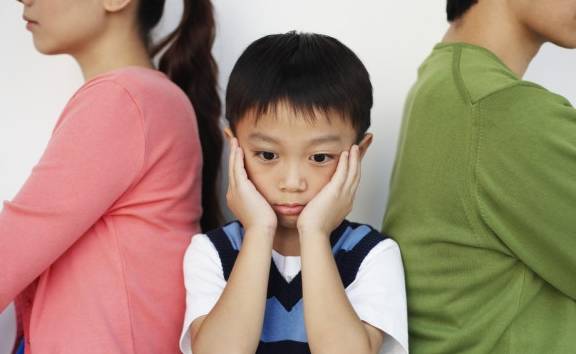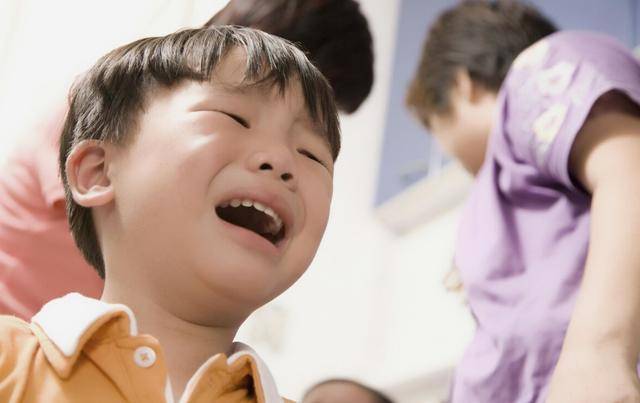5 parents’ sayings that children don’t like
Language is an important means for parents and children to communicate effectively. So do parents know what are inspirational sayings for their children; What is the saying that makes children hate and become rebellious?
In a survey, researchers classified 5 phrases parents frequently use with their children. This is a saying that children do not like to hear and have a hostile attitude if parents repeat it many times. If you often say these words to your child, change it!
1. Parents do so for the sake of their children
There is a story that makes many parents think, wonder if they have ever fallen into that situation. The story is as follows: Tieu Xuyen (China) has a dream to enter Nanjing University but her mother does not agree. She hopes she will be admitted to Tsinghua University or Peking University.
As a single mother, she placed all her hopes on her daughter and did not allow her to do as she pleased. Finally, under pressure from her mother, she suffered from severe depression and had to go to the hospital for treatment for a long time.

Although parents love their children, parents should let their children be free and have the right to do as they please. (Illustrated image)
Every parent wants the best for their child. From their own experience, they will give useful advice in the hope that their child’s life path will be smooth and less turbulent. However, excessive intervention can destroy the child. This is the act of taking away the right to choose and the right to be responsible for their lives.
Each person should have a separate life, parents can help and guide their children but cannot ask them to live up to their expectations.
2. Have you done your homework? Parents see their children play all day
Parents are always interested in their children’s homework. They worry that their children don’t study their old lessons, don’t complete the assignments given by the teacher, or don’t get good grades on tests. Therefore, they always follow me every step of the way, urging me to do my homework.
It is common for children to be lazy not to do their homework or not to pay attention when doing it. Therefore, many parents always ask their children often: “Have you done your homework yet?” If your child replies that he hasn’t finished his homework, he will definitely be reprimanded: “You know you’ve been playing all day today?”
Children who are reminded and urged to do their homework every day must be very tired and bored. Just like parents going to work and being urged by their boss: “Where’s the report? Why hasn’t it been completed yet?”. Each child has their own routine and rhythm of life. Parents can observe and guide children how to arrange appropriate time. For example, parents should calmly ask their children: “What time do you plan to do your homework?”, “How long will it take for you to complete?”, “Do you need help from your parents?”, etc.
Letting children figure out when and how they learn best is much more effective than pushing and nagging.

Let your children learn on their own, parents should not push too much. (Illustrated image)
3. Parents are the ones who give birth to children, children must obey
Parents need to have certain rights for their children to fear and obey. However, if parents are used to using authority to command, coerce, and demand that their children be submissive in everything, it will backfire. Writer Rudolph Drakes wrote in “Children: The Chalenge”: “Whenever we order or force a child to do something, it leads to conflict.”
Every child has their own ideas. If parents do not sympathize with their children’s thoughts but use their rights as a father and mother to refute the idea, the child can protest. They are disobedient or may act in a hostile way. More dangerous is that next time they won’t share anything anymore, doing as they please.
4. Look at people’s children…
Most children have an “enemy” who is “other people’s children”. Some parents use “other people’s children” to set a good example for their children. They think that this comparison will help children try harder. But in fact, children hate to be compared with any other child.

Never compare your child with “other people’s children”. (Illustrated image)
Some parents have unrealistic thoughts. They hope that their children will become good and excellent like “the people” but forget the advantages of their children. Comparing and criticizing for a long time will hurt children’s psyche. Gradually, children will lose confidence, always feel themselves weaker than others.
5. You’re stupid/ You’re useless
Some parents, when they see their children doing something wrong, often say: “Why are you doing this, you’re so stupid!”, “You’re useless!”, etc. An American psychologist once shared: “Once people are labeled with a certain label, they become the person with that label.”
Parents’ condescending words make children subconsciously think that they are really bad and weak. Never underestimate the impact words have on a child’s life. Parents’ words are very important, contributing to the formation of a child’s character.
If you really want your child to excel, you need to influence your child with positive words and actions. Always say words of encouragement and encouragement to help your child become more confident in himself.
at Blogtuan.info – Source: Afamily.vn – Read the original article here


